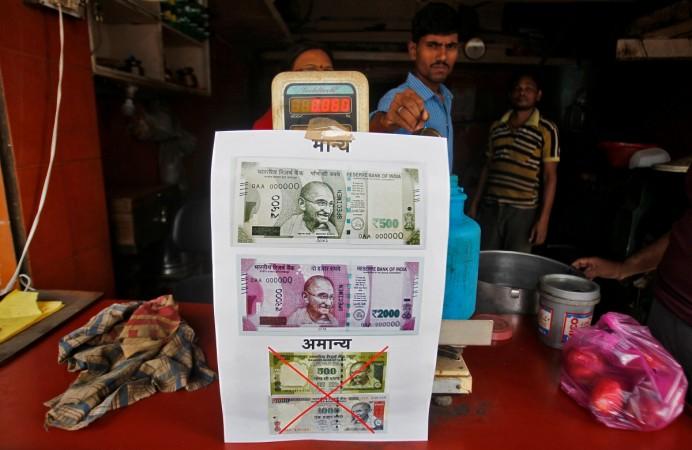
Since Prime Minister Narendra Modi announced the demonetisation of Rs 500 and Rs 1000 notes on the evening of November 8, the cash crunch has caused a semi-paralysis to economic activities around the country.
But regions the north-east have been uniquely affected. Here is a summary of unusual activities reported there:
Assam: Government relief to tea garden labourers motivated by electoral gains? Asks Sitaram Yechury
BJP government in Assam had to resolve the brewing crisis in the tea cultivation industry as the economy is very highly cash-dependent. Seeking "the direct intervention of the prime minister's office", the government attempted to aid the ten lakh tea garden labourers working in over 900 tea gardens of the state. As per informal data cited by the Wire, the industry needs about Rs 90 crore every week to disburse wages.
The situation was also treated as a priority due to a "a possible unrest" among labourers due to non-payment of wages as there have been several incidents in the past that have led to violent altercations
Aware about the need for liquidity, chief minister Sarbananda Sonowal, on November 10 directed the deputy commissioners in every district to seek details of cash requirement from owners of the various tea estates. Himanta Biswa Sarma, state finance minister also said that the PMO made "special arrangements" for the tea garden management.
The resolution that was worked out required the management to hand over the cheques for weekly payment to the commissioners. They would in turn withdraw the amount from the bank on behalf of the owners.
However, the move was criticised in parliament on November 17 by CPI(M) general secretary Sitaram Yechury, who claims that the move is motivated by electoral ambition as the state will see by-elections in two constituencies on November 19.
"In Assam, there is a by-election day after tomorrow. So for Assam tea gardens, the central government is giving an exemption. But not to Bengal, why? This should be investigated. In Maharashtra, they have said you can use old notes to buy cinema tickets. You can't buy food but cinema tickets? How are these exemptions being decided?" Sitaram Yechury had said while questioning the government's move.
Manipur: Newspapers shut
November 17 onwards, the public of Manipur will not have access to newspapers as the All Manipur Newspaper Sales and Distribution Association and Newspaper Publishers' Association and the Editors' Guild decided to stop production as newspaper owners are no longer accepting Rs 500 and Rs 1000 notes from the distributors.
Local news reports quoting distributors said, "What has affected their business is also non-availability of the new notes in the banks and the ATMs across the state." A joint statement issued on November 17 by the associations said, "We apologies for the public inconvenience in this regard."
Mizoram: 'I owe you' chits replace money in a village
Just as reports indicated unusual stories coming out of Kerala where an entire village is now relying on barter system to meet their needs, in Mizoram's Khawbung village, bordering Myanmar, a shopkeeper named P C Lalmachhuana, who owns a hardware shop has begun idea of handing over 'I owe you' chits quoting the amount with his/her signature in lieu of cash-based transactions.
"Being a closed community where everyone knows everyone, the idea is really helping both the villagers and the shopkeepers there. Because of it, there was the usual business on the weekly market day on November 12," Lalmachhuana was quoted saying by an Aizawl-based reporter according to the Wire.
Assam: Bhutanese currency coming to the rescue of border residents
There has been a surge in the use of the Bhutanese currency in these Assamese villages near the Bhutan border ever since the demonetisation announcement by Prime Minister Narendra Modi.
Reports state that the value of the Bhutanese currency has surged by almost 25 percent to match the value of the Indian currency in the border areas.
"People in the Assamese villages near the Bhutan border have been accepting the Bhutanese currency since decades. We don't see the use of the currency in Bokaghat or Guwahati though. I heard about the use of Bhutanese currency from my aunts and uncles who live in a border village called Barpeta. Most of the shop owners and rickshaw pullers accept the currency," Mridusmita Chowdhury, a resident of Bokaghat, Assam, said.
"I am sure the step taken by the government is for the country's good but we are thankful for the use of Bhutanese currency here. There is hardly any bank or ATM available in this village, if it were not for the Bhutanese currency, we would have had to travel far and long to get cash, life here would have come to a standstill. I read that new Rs 2,000 and Rs 500 notes have been released but nobody here has seen them yet," Antaripa Das, from Barpeta village, said.














